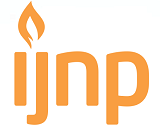Sikap Mahasiswa Terhadap Kebijakan Kampus Bebas Asap Rokok di Universitas Muhammadiyah Yogyakarta
DOI:
https://doi.org/10.18196/ijnp.v3i1.2222Abstract
Smoking is one of the problems in society that is diicult to be resolved. In 2011, 6 million deaths each year are caused by smoking. The number of smokers in Indonesia continues to grow which is dominated by the age of 15 years and above. To overcome these problems, the government issued a policy of banning smoking in the learning process places. UMY is one of the places that have already implemented smoke-free campus since 2011, however there are people who still smoke in the campus.
The purpose of this study was to determine how the students’ attitude of Universitas Muhammadiyah Yogyakarta toward a smoke-free campus policy. This studywasaqualitativeresearchwithphenomenological approach. The data was taken using the disccusion focus groups, depth interviews and observation. Participants in this study were determined by purposive sampling which were 20 participants consisting of students and campus employees in UMY. The validity of the data in this study was done by using triangulation, triangulation methods and peer debrieing. Data analysis by using the soft ware open code version 4.2. The results indicated that the students who were active smokers agreed and disagreed on KBBR, nevertheless there are diferences in attitudes related to compliance with these rules. Students who were active smokers who agreed to KBBR supported and there were students who did not support the KBBR. But students who were active smokers that did not agree to KBBR did not support the implementation of KBBR on campus. Unlike the students who were active smokers, passive smokers students all agreed and supported KBBR in UMY. By that attitude, UMY needs to increase their knowledge and socialization of KBBR to the students, therefore the students are able to increase the positive attitude towards KBBR in order to create a clean and smoke-free campus.
Keywords: Attitude, KBBR, UMY
References
Firdiana, A. (2013) . Gambaran Sikap Mahasiswa Unpad Terhadap Kawasan Tanpa Rokok di Kampus Unpad. Karya Tulis Ilmiah strata satu Universitas Padjadjaran.
Jamal, H., Leida, M., Thaha., & Ansariadi. (2012). Kepatuhan Mahasiswa Terhadap Penerapan Kawasan Bebas Asap Rokok di Kampus Universitas Hasanuddin.
Kementrian Kesehatan RI (2011). Informasi tentang penanggulangan masalah merokok melalui radio . Jakarta.
Kementrian Kesehatan RI (2013). Riset kesehatan dasar (Riskesdas) 2013. Jakarta.
Rahmadi, A., Lesatari, Y., & Yenita (2013). Hubungan Pengetahuan dan Sikap Terhadap Rokok Dengan Kebiasaan merokok Siswa SMP di Kota Padang. Jurnal Kesehatan Andalas. Diakses 5 November 2015, dari http://jurnal.k.unand.ac.id/ index.php/jka/article/view/62.
Robaka, Y., Rimawati, E., & Nurjanah. (2013). Kepatuhan Mahasiswa Terhadap Kawasan Tanpa Rokok (KTR) di Universitas Dian Nuswantoro Semarang. Karya Tulis Ilmiah strata satu Universitas Dian Nuswantoro Semarang. Semarang.
Salawati & Amalia. (2010). Perilaku Merokok di Kalangan Mahasiswa Universitas Muhammadiyah Semarang. Prosiding Seminar Nasional Unimus. Diakses pada 5 November 2015, dari htp://jurnal.unimus. ac.id/index.php/psn12012010/article/view/70.
Sax,G. (1980). Principles of educational and Psychological Measurement and Evaluation, 2nd edition, Belmon:Wadsworth Publishing Company.
Widiansyah, M. (2014). Faktor-faktor Penyebab Perilkau Remaja Perokok di Desa Sidorejo Kabupaten Penajam Paser Utara. eJurnal Sosiologi (4): 1-12. Diakses tanggal 23 Februari 2016, dari htp://ejournal. sos.fisip-unmul.ac.id/site/wp-content/ uploads/2014/10/penting%20(10-02-14-12- 04-55).pdf.
World Health Organization (WHO) tahun 2011.
Downloads
Issue
Section
License
License
Articles published in the IJNP (Indonesian Journal of Nursing Practices) are licensed under a Attribution 4.0 International (CC BY 4.0) license. You are free to:
- Share — copy and redistribute the material in any medium or format.
- Adapt — remix, transform, and build upon the material for any purpose, even commercially.
This license is acceptable for Free Cultural Works. The licensor cannot revoke these freedoms as long as you follow the license terms. Under the following terms:
Attribution — You must give appropriate credit, provide a link to the license, and indicate if changes were made. You may do so in any reasonable manner, but not in any way that suggests the licensor endorses you or your use.
- No additional restrictions — You may not apply legal terms or technological measures that legally restrict others from doing anything the license permits.
Copyright
Authors who publish with IJNP (Indonesian Journal of Nursing Practices) agree to the following terms:
- Authors retain copyright and grant IJNP (Indonesian Journal of Nursing Practices) the right of first publication with the work simultaneously licensed under an Attribution 4.0 International (CC BY 4.0) that allows others to remix, adapt and build upon the work with an acknowledgment of the work's authorship and of the initial publication in IJNP (Indonesian Journal of Nursing Practices).
- Authors are permitted to copy and redistribute the journal's published version of the work (e.g., post it to an institutional repository or publish it in a book), with an acknowledgment of its initial publication in IJNP (Indonesian Journal of Nursing Practices).














